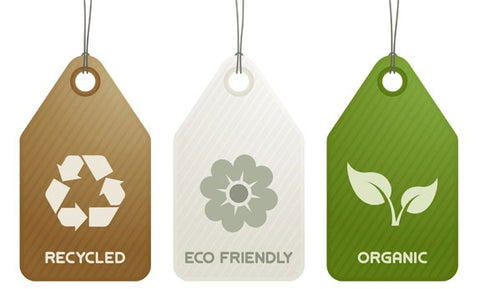
Climate crisis has made people aware of the need for a sustainable lifestyle. As we feel the consequences of climate change, we’re also becoming more conscious of the ecological impact of our decisions. This has led to a significant increase in consumer demand for sustainable products.
Before debunking the myths surrounding sustainability, it is essential for us to understand, what exactly is sustainability?
Sustainability…
Going by the definition, sustainability is the “capacity for the biosphere and human civilization to coexist.” It is the “process of people maintaining change in a homeostasis balanced environment, in which the exploitation of resources, the direction of investments, the orientation of technological development and institutional change are all in harmony and enhance both current and future potential to meet human needs and aspirations.”
In short, sustainability is the finding balance between the society, economy, and environment, meeting present requirements while keeping in mind future needs.

We can see the shift towards sustainable practices in day-to-day life. Celebrity endorsement of ‘sustainable products’, businesses endorsing ‘sustainable practices’, governments passing ‘sustainable laws’ are all a few examples. But despite the increased awareness, sustainability remains a vague and misunderstood concept.
It’s no surprise that along with the awareness, there comes plenty of myths abound about sustainability. These misconceptions can hamper the slow, but steady progress we make towards being sustainable.
This article debunks the six most popular myths that people believe about sustainability.
Bonus Read: Fashion & Its Impact on the Environment
Myth 1: There is no Single Definition of Sustainability
The term ‘sustainability’ brings plenty of images to the mind. From the ‘recycle’ symbol to ‘100% organic’ tags, electric cars to the Chipko movement, sustainability evokes a broad range of definitions. And it does mean all of these things.
But there is, in fact, a single, official definition of sustainability that encompasses all these things. In 1987, the UN World Commission on Environment and Development (also known as Brundtland Commission) defined sustainability as “development that meets the needs of the present without compromising on the ability of future generations to meet their own needs.”
Or as Mahatma Gandhi eloquently summarized decades ago “Enough for everyone’s needs, but not everyone’s greed.”
Sustainability does come with a single definition and it aligns perfectly with the thought of protecting the world.
Myth 2: Sustainability = Lower Standards of Living
Media portrayal of sustainable activities has made us believe that those who live sustainable lifestyles have low living standards. Vegans, cyclists, and adopters of organic clothing are often portrayed as anti-technology and against modern developments. Activists and their protests against environmental degradation often receive bad press for the same reason.

While it’s true that sustainability is all about minimalism, it’s got scientific backing behind it. We don’t really need as much as we believe we do. Our consumption-centric lifestyle generates more waste than we can deal with it, while spending more resources than we can afford. If anything, sustainability is necessary if we’re to preserve resources for the future.
While firmly believing in the principles of minimalism, sustainability doesn’t take it to extremes.
Myth 3: Sustainability is only for the Privileged
In the short-term, sustainability may seem like a long, expensive journey. But when we look at things long-term, it actually cuts more costs than it incurs. The expenses that unsustainable practices incur often go unnoticed because we’re so used to them. But buying sustainable products is an investment- you don’t spend much after buying them because you won’t need to.

For example, if you decide to buy secondhand, sustainable clothing, this is how you make a difference
- No new resources were used up to make your clothing
- Since it was purchased in the same locality as you, transport emissions are negligible
- Your money goes to a local business, and not an MNC
- You’re keeping something out of a landfill, and reducing net waste
By being sustainable, companies also stand to save more than they spend. Sustainability promotes a safer environment, meaning fewer work-related illnesses and deaths. This reduces turnover and increases productivity, which can potentially boost profits.
Recommended Reading: How Sustainable Is Your Product?
Myth 4: Recycling is the Only Way to Achieve Sustainability

Recycling is the first thing that comes to most of our minds when we think of sustainable practices. But for many of us, it is the only thing. While recycling certainly reduces the consumption of natural resources, it is not the only way to do so. Here are some other ways in which we can achieve sustainability in our day-to-day lives.
- You can invest in companies that use renewable energy sources, or make a social impact
- You can purchase second-hand or organic clothing for more economical prices and simultaneously reduce the waste being generated
- Businesses can provide healthier meal options and educate employees on sustainable practices
- Governments can enact legislation that reduces their dependence on coal and fossil fuels, and shift to renewable sources of energy
Recommended Reading: Why Recycling Products is Important?
Myth 5: Sustainability is just a Trend
This would be true if climate change were just a temporary problem. The reality is much grimmer than we make it to be. Than we want to accept. The fact is that many of the abbreviations associated with sustainability- such as Corporate Social Responsibility (CSR) and Environment, Social and Government (ESG) are yet to take off. Yet, they all aim to reduce the negative impacts of business practices and enhance the positive ones.
Economic justice has remained an ever-constant in any economic system, and sustainability is the latest incarnation of it. And as the climate crisis exacerbates, we’re seeing why we need to put it at the forefront. In the future, sustainability as an idea may not exist in its current form, but its substance will remain intact.
Myth 6: Sustainability means going the extra mile for society

Every business creates social, environmental, and economic impacts on the world around it. Committing to sustainability can be viewed as an attempt to reduce negative impacts and improve positive ones. Companies often take the leeway to perceive themselves as going the extra mile for society. This becomes a reason to increase prices and thereby profits.
But being sustainable isn’t going the extra mile. In today’s world, it’s a necessary step all organizations need to take to deal with the climate crisis. It’s not the extra mile being taken for society as much as the extra mile all of society needs to go.
Also Read: Why Sustainable Fashion Matters?
Conclusion
We hope we’ve cleared the air on some of the biggest myths that surround the idea of sustainability. Sustainability isn’t for a privileged few or those who choose to live with little. It isn’t just about the 3R’s (Reuse, Reduce, and Recycle), and it’s most certainly here to stay.
Interested in learning more about how you can lead a sustainable lifestyle? NorthMist directs its efforts to help you understand how you can make a positive change to the environment without giving up on your current luxuries.
Check out our blog for more information!






